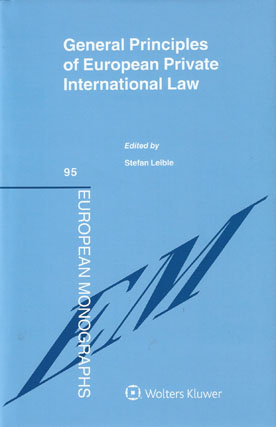
European private international law, as it stands in the Rome I, II, and III Regulations and the recent Successions Regulation, presents manifold risks of diverging judgments despite seemingly harmonised conflict of law rules.
There is now a real danger, in light of the rapid increase in the number of legal instruments of the European Union on conflict of laws, that European private international law will become incoherent.
This collection of essays by twenty noted scholars in the field sheds clear light on the pivotal issues of whether a set of overarching rules (a ‘general part’) is required, whether an EU regulation is the adequate legal instrument for such a purpose, which general questions such an instrument should address, and what solutions such an instrument should provide.
Practitioners dealing with these notoriously difficult cases will welcome this in-depth treatment of the issues, as will interested policymakers throughout the EU Member States and at the EU level itself. Scholars will discover an incomparable comparative analysis leading to expert recommendations in European private international law, opening the way to an effective European framework in this area.